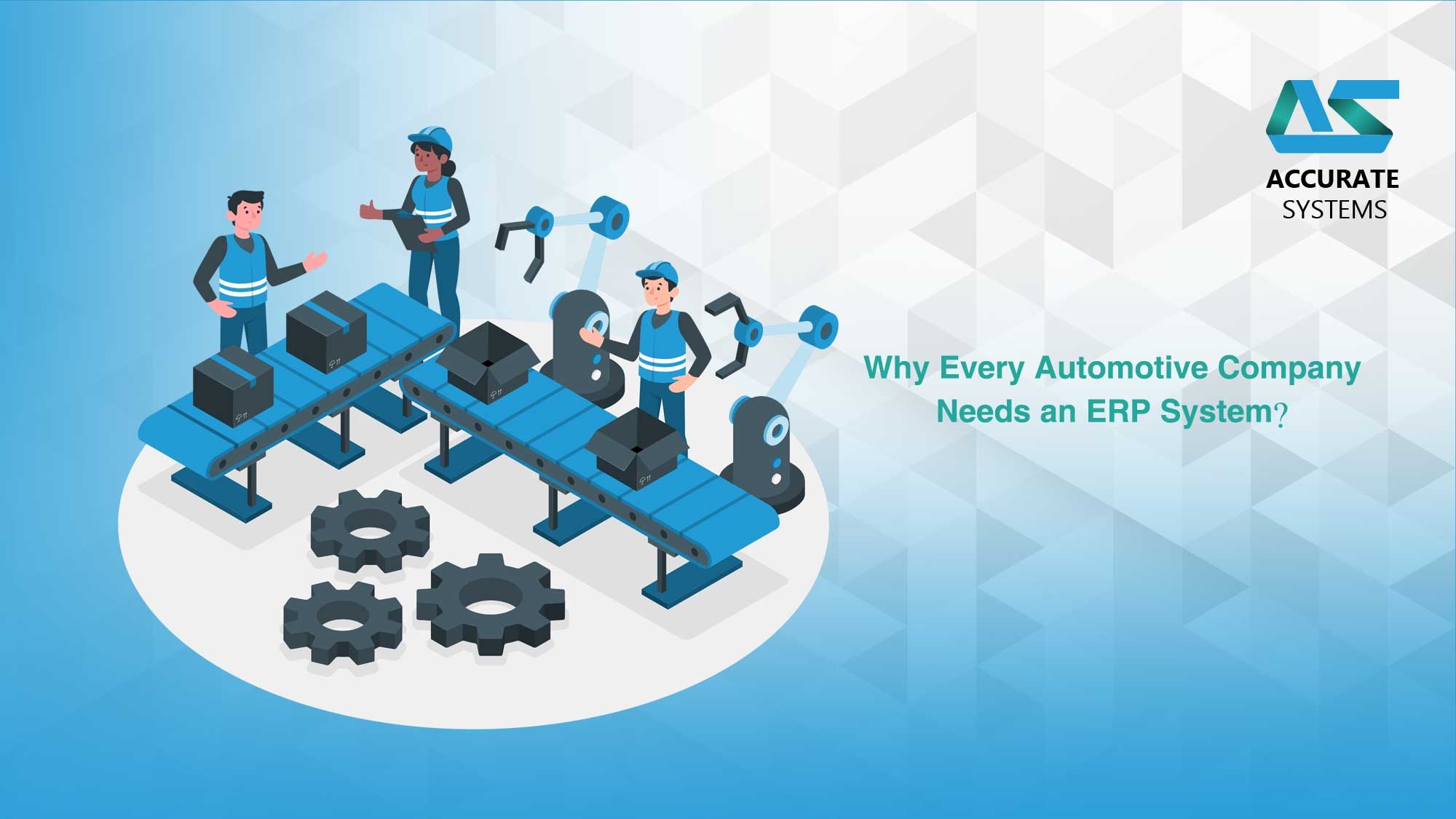In the fast-paced, competitive world of automotive manufacturing and service, efficiency and agility are paramount. This is where an Enterprise Resource Planning (ERP) system shines, offering a centralized platform to integrate and manage critical business processes across your entire organization. Here’s why an ERP system is crucial for the automotive industry:
-
Streamlined Operations & Increased Efficiency:
- Integrated Data and Processes: Say goodbye to siloed data and redundant tasks. ERP connects departments like Purchasing, Production, Sales, and Finance, providing a single source of truth for all your automotive operations. This leads to improved communication, collaboration, and decision-making.
- Real-Time Visibility: Get real-time insights into inventory levels, production schedules, customer orders, and other critical information. This allows you to react quickly to changes, optimize resource allocation, and avoid costly delays.
- Automated Workflows: Automate repetitive tasks like generating purchase orders, managing inventory, and processing invoices. This frees up your team to focus on strategic initiatives and improves overall operational efficiency.
-
Enhanced Inventory Management:
- Optimized Inventory Levels: Gain precise control over your inventory, including parts, raw materials, and finished vehicles. You can predict demand more accurately, reduce stockouts, and minimize overstocking, saving you money and space.
- Improved Tracking & Traceability: Track every component and vehicle throughout the production and supply chain. This ensures quality control, simplifies recalls, and enhances overall compliance with industry regulations.
- Just-in-Time (JIT) Manufacturing: Implement JIT strategies by having the right parts at the right time, eliminating unnecessary storage costs and reducing overall production lead times.
-
Increased Customer Satisfaction:
- Improved Order Fulfillment: With accurate inventory data and efficient production processes, you can fulfill customer orders faster and more accurately, leading to higher satisfaction and loyalty.
- Faster Service and Warranty Management: Quickly access customer service history and vehicle warranty information, enabling faster repairs and enhanced customer support.
- Personalized Customer Experiences: Utilize customer data to tailor marketing campaigns and offer personalized services, building stronger relationships and driving further brand loyalty.
-
Scalability and Flexibility:
- Cloud-Based Solutions: Modern ERP systems are increasingly cloud-based, offering unparalleled scalability and flexibility. You can easily adjust your system to accommodate business growth without significant infrastructure investments.
- Industry-Specific Features: Look for ERP systems specifically designed for the automotive industry, with features like vehicle configuration management, production planning, and quality control modules.
- Modular Design: Choose an ERP system with a modular architecture, allowing you to add or remove specific functionalities as your needs evolve.
-
Reduced Costs and Increased Profitability:
- Eliminate Manual Processes: Automation and streamlined workflows free up your team’s time and reduce the risk of human error, leading to lower operational costs.
- Optimize Resource Utilization: Gain better visibility into your resources and utilize them more efficiently, reducing waste and overhead costs.
- Improved Decision-Making: Data-driven insights from your ERP system empower you to make informed decisions that improve profitability and competitive advantage.
Investing in an ERP system is a strategic decision for any automotive industry player. By streamlining operations, optimizing inventory, enhancing customer satisfaction, and offering scalability, ERP systems can unlock significant competitive advantages and pave the way for future growth.

